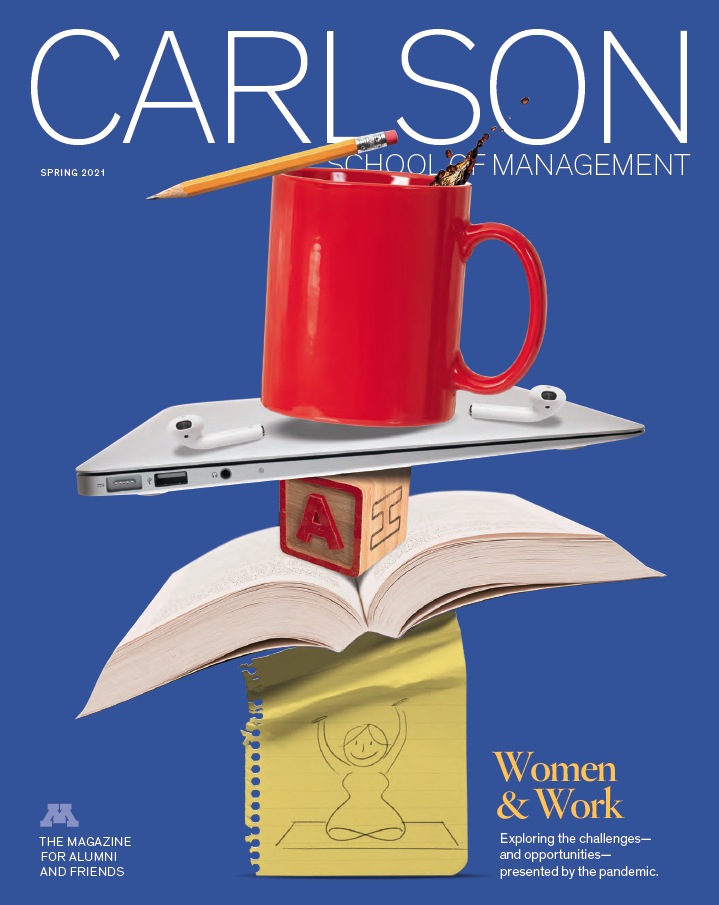
Breaking Down Barriers
Friday, April 2, 2021
Donor gift bolsters wellbeing resources for Carlson School graduate students.
Early in Maureen Steinwall’s career, there wasn’t widespread discussion of work-life balance. She observed that people were expected to give all they could to their job, often leading to a stressful work life and no balance. She had few female peers as a new graduate working in accounting and the manufacturing sector, which was particularly unwelcoming to women at the time.
After earning her MBA from the Carlson School in 1981, concentrating in operations management, she took over her father’s small plastic injection molding company, Steinwall Inc., and began growing it to be one of the largest woman-owned businesses in Minnesota.
All this time, Steinwall was a woman with a family, in a role and sector typically dominated by men—breaking the stereotype of what was expected of a woman. While she found success in her business, forging a new path proved to be very stressful for her.
“In business school, students were taught how to manage change and motivate people. How to maximize productivity,” Steinwall says. “People would come out of business school thinking perfection is possible.”
That assumes, she says, that employees and managers are coming to work without emotions, but managers need additional tools to deal with employees who are stressed when they themselves may be experiencing stress.
“Managers not only need to have awareness around their own mental wellbeing but also how to lead employees in a way that contributes to employees’ wellbeing,” Steinwall says. “We should be thinking about optimizing, not maximizing. Not perfection.”
Steinwall felt this awareness of wellness, mental health, and work-life balance was sorely lacking in her training as a student in business school and in her early career as a manager. Steinwall then went back to school, earning her doctorate in Organizational Management and Leadership.
Managers need to have awareness around their own mental wellbeing, but also how to lead employees in a way that contributes to employees’ wellbeing. We should be thinking about optimizing, not maximizing. Not perfection.
“Through positive psychology, you can observe how all the happy, successful people manage, then apply it to your own life, and in managing others,” Steinwall says. When she started applying the principles of positive psychology to her role managing a large manufacturing business, she found great success, for herself, her employees, and her company.
The Carlson School gave Steinwall so many tools to be successful in her career, and now, she is paying that forward to future generations of business leaders by being a champion in an area she feels has been underserved by making an endowment gift to enhance wellness programming for graduate students.
Student mental health is also a priority for the Carlson School. In recent years, wellness programs and initiatives have been expanded, and a dedicated in-house counselor was hired to serve undergraduate students. Steinwall’s funding will support the expansion of the resources available at the graduate level, to help students in need, educating students about mental health, and building lifelong wellness skills.
“Awareness of mental health and wellness needs to be woven into the curriculum of all business schools,” says Steinwall. “Bringing the tools of positive psychology to the business school environment is a long-term investment... It is incredibly important for individuals impacts the quality of the organization they serve, and ultimately the state of Minnesota.”
